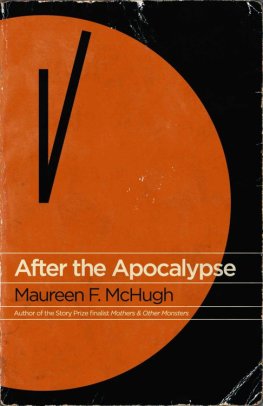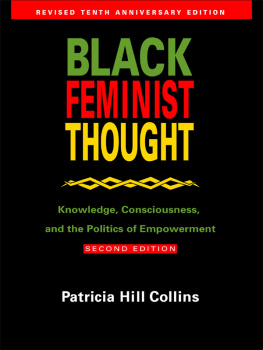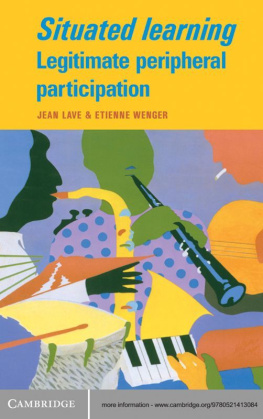Published by State University of New York Press, Albany
2015 State University of New York
All rights reserved
Printed in the United States of America
No part of this book may be used or reproduced in any manner whatsoever without written permission. No part of this book may be stored in a retrieval system or transmitted in any form or by any means including electronic, electrostatic, magnetic tape, mechanical, photocopying, recording, or otherwise without the prior permission in writing of the publisher.
For information, contact State University of New York Press, Albany, NY
www.sunypress.edu
Production, Diane Ganeles
Marketing, Kate R. Seburyamo
Library of Congress Cataloging-in-Publication Data
McHugh, Nancy Arden.
The limits of knowledge : generating pragmatist feminist cases for situated knowing / Nancy Arden McHugh.
pages cm
Includes bibliographical references and index.
ISBN 978-1-4384-5781-9 (hardcover : alk. paper) ISBN 978-1-4384-5782-6 (e-book) 1. ScienceSocial aspects. 2. Social medicine. 3. Public health administration. 4. Feminism. 5. Knowledge, Theory of. I. Title.
HM545.M34 2015
303.48'3dc23
2014041451
10 9 8 7 6 5 4 3 2 1
To Patrick Braham,
Arden McHugh-Braham,
and Arden McHugh,
who make the good things in life
even better.
Acknowledgments
I want to thank the people in my life who help me to live better and think better. There are lots of crossovers between these groups and I know that I have left people out who should be included.
Two groups of people have particularly helped with the progress of this book. The first is the feminist philosophers, scientists, and social scientists in the Association for Feminist Epistemology, Metaphysics, Methodology, and Science Studies (FEMMSS) and of the National Endowment of the Humanities Summer Seminar in Feminist Epistemology, organized by Nancy Tuana and Shannon Sullivan. They were invaluable for the success of this project. Most of the chapters in this book were presented in some form at FEMMSS and many of the ideas were initiated at the NEH Summer Seminar in Feminist Epistemology. Thank you especially to Heidi Grasswick, Carla Fehr, Phyllis Rooney, Cate Hundleby, Gaile Pohlhaus, Marianne Janack, Sharon Crasnow, and Lorraine Code. I also particularly appreciate Miriam Solomon who has provided numerous years of encouragement and support.
The second group of people are my colleagues and friends in the Friday happy hour writing group, Dar Brooks Hedstrom, Tammy Proctor, Carmiele Wilkerson, and Molly Wood. They read numerous drafts of multiple chapters. Deadlines, accountability, and beer and the occasional martini were key. Thank you.
I am lucky to have colleagues and students whose work and lives inspire me and help shape my thinking and practice. Thank you to my department members Don Reed and Julius Bailey, and my former colleagues, Miguel Martinez-Saenz and Erinn Gilson, as well as to the philosophy majors whose time in my office, hard questions, enthusiasm, and chosen life paths after graduation make my job rewarding. Kristen Ricchetti-Masterson was my undergraduate research assistant for the very first part of this project. Her research skills and motivation were invaluable. Thank you also to my Inside-Out Prison Exchange students, especially my inside students at both London Correctional Institution and the Clark County Juvenile Detention Center, who continually remind me that thinking hard and carefully is a vital pursuit in all places. Also, my training by the Theory Group at Ryan Correctional Facility in Detroit, Michigan with the Inside-Out Prison Exchange was a formative experience that has led me in new and exciting directions with my teaching and research.
This project was supported by several sources. The National Endowment of the Humanities Summer Seminar on Feminist Epistemology provided intellectual and collegial space to stimulate the ideas for this project. A grant from the Freeman Foundation provided funds for travel to Viet Nam where my experiences there were the impetus for this book. The National Science Foundation, Science, Technology and Society Division, funded the research and my sabbatical leave for The Limits of Knowledge. Wittenberg University awarded me multiple research grants, conference travel grants, and my sabbatical leave, all of which were essential for the project.
Thank you again to Heidi Grasswick and also to the anonymous reviewers for Heidis volume Feminist Epistemology and Philosophy of Science: Power in Knowledge .
The anonymous reviewers for the State University of New York Press provided useful and critical feedback of the manuscript and the editorial team, Andrew Kenyon, Diane Ganeles, and Kate R. Seburyamo, at SUNY Press were efficient, encouraging, and made publication a seamless process. Thank you.
Thank you to the people, presses, and organizations that granted permission for use of excerpts from their news sources: Laura Fulbright. Big Victory for Hunters Point Activists San Francisco Chronicle (May 15, 2006) A1; Chris Rizo, U.S. Supreme Court Declines to Hear Agent Orange Lawsuits, Legal Newsline (March 10, 2009); Caroline Morton, Roots in the Community: The Auction Newsletter Clinic For Special Children (1992). These on the ground accounts provided context and focus for the arguments in the book.
My friends provided sustenance on many levels, but especially in the form of drink, food, entertainment, travel, biking, running, and horse riding. This time away from work and writing provided my life with balance and good health. Thank you especially to Tammy Proctor and Margaret Goodman, who are my much missed running and thinking partners, Julie Holland, Miguel Martinez-Saenz, Molly Wood, Dar and Mark Brooks Hedstrom, Natalie Koukis, John Derr, Todd Shirley, and Chris Raffensperger (so you dont have to be the crying kitty). Also thank you to the Deadly Seven. You know who you are and you are awesome.
I want to especially thank my family, to whom this book is dedicated. Patrick always provides humor, irony, emotional sustenance, bike rides, and shoes strategically placed throughout the house. Arden reminds me to slow down, laugh more, and to see the small, beautiful things life has to offer. My mother, the other Arden in the dedication, always checked in to see how the book was coming along.
ONE
Introduction
Knowing (in) This Place
T he Tu Du hospital in Ho Chi Minh City is Viet Nams largest womens hospital. I went to Viet Nam in 2004, three years after the trade relations between the Vietnamese and U.S. governments were restored to normal. Traveling with a group to study how the change to a market economy, Doi Moi, affected the Vietnamese, we were asked to visit the hospital and to tour its Peace Village. I knew little about Peace Villages, little about Agent Orange, and little about the destruction that I was about to see.
As I walked out of the offices, a clinical space that revealed very little about what I was about to experience, I was troubled that two generations after the American war ended (what we in the United States call the Viet Nam war) children were being born with an alarming rate of congenital anomalies in the communities having the highest levels of exposure to Agent Orange. The director of the hospital said they suspect there are genetic changes occurring at the somatic level, in utero, as well as at the germ cell level, the level of the sperm and egg. What little I knew about research done on Agent Orange and U.S. Viet Nam veterans indicated that dioxin could not have genetic effects on these levels; dioxin was supposedly unable to bind with or alter Yet, I didnt know how else to explain the effects they were describing to me.









